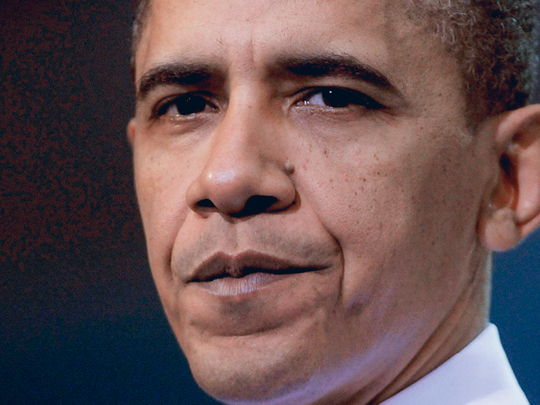
Washington: Pressure is mounting on the Obama administration to take action against China for undervaluing its currency, with business leaders, economists and other analysts citing the issue as emblematic of a broader tension developing in one of the world's central trading relationships.
The Treasury Department on April 15 will issue a semiannual report on the management of currencies around the world in which it will have to decide whether China manipulates its exchange rates "for purposes ... of gaining unfair competitive advantage in international trade."
China maintains a strict peg between the value of the renminbi, its currency, and the US dollar, and there is broad agreement that the rate is lower than it would be if the currency traded openly — perhaps by as much as 25 per cent, making Chinese goods that much cheaper on global markets.
In two prior reports since President Obama took office, the department shied away from making such a declaration, hesitant to provoke a trade dispute as both countries were responding to the global economic downturn. Instead, officials folded the currency question into the administration's larger aim of resolving issues through negotiation and engagement in international organisations, such as the Group of 20 economically powerful countries.
Changing landscape
But a year later, the economic landscape has shifted. China's exports have rebounded, and its economy is growing strongly enough that US officials think the country needs to shift away from the export-dominated strategies that have fuelled its growth.
US joblessness, meanwhile, has responded little to renewed growth, and some cite the massive trade deficit with China as a drag on US employment. The United States in 2009 bought $226 billion (Dh829.4 billion) more in goods and services from China than it sold to the country, reflecting the imbalance that has ballooned in the past decade since China joined the World Trade Organisation and that has exceeded $200 billion annually for the past five years.
Few consider the trade deficit fully reversible — low-cost Chinese goods are deeply integrated in the purchasing and supply chains of US retailers, and have helped lower prices for a wide array of goods. China has been a key buyer of US Treasury bonds as well, helping to fund US budget deficits by recycling its export earnings.
But recapturing even a fraction of that trade deficit could be a boon for US businesses, and increasing the value of the yuan would make competing US products more attractive in sales to third countries.
"The politics of this has gotten worse — both in terms of the US and in terms of the world," said Ted Truman, a senior fellow at the Peterson Institute for International Economics who advised the Treasury Department in the first months of the Obama administration. "We have said we are not going to be the consumers of last resort and we need a healthy growth of our exports, and that is not going to work if everybody else undervalues their currency."
Economic advantage
A currency peg in and of itself is not considered manipulation; it has to be done with an aim of enforcing an economic advantage to merit that designation.
There has been an increasingly vocal chorus calling for the US administration to at least cite China for currency manipulation —if only to inject a sense of urgency to the discussion, and perhaps elicit support from other countries that disagree with China's currency policy. The designation would trigger "expedited" negotiations with China over a currency revaluation, and some have called for punitive tariffs to be levied on Chinese goods if talks are unsuccessful.
Chinese officials have been blunt in their view of the matter, saying that US pressure to change their currency could ignite a trade war between two countries whose cooperation is considered key to the global economic recovery.
The currency issue is not without controversy in China. A group of industrialists has encouraged a rise in the value of the renminbi, saying it would bolster many Chinese businesses by encouraging more domestic spending. In addition, defending the dollar peg forces China's central bank to buy billions of dollars in Treasury securities, money some argue could be put to better use inside the country.












